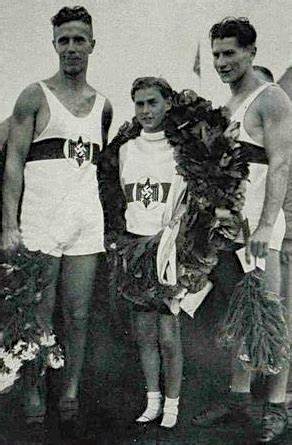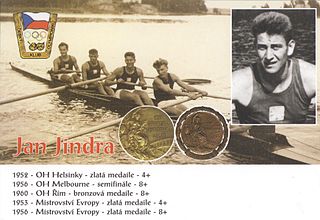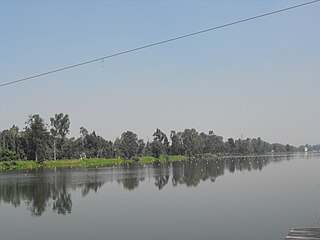
The men's coxed pair event was a rowing event conducted as part of the 1964 Summer Olympics programme. It was held from 11 to 15 October. There were 16 boats from 16 nations, with each nation limited to a single boat in the event. The event was won by American crew Edward Ferry, Conn Findlay, and coxswain Kent Mitchell. Findlay had been on the United States gold medal crew in 1956 and bronze medal crew in 1960; he was the first man to earn two gold medals in the event, as well as the first man to win three medals of any color in the event. Mitchell had also been on the 1960 crew, and was the seventh man to earn multiple medals in the coxed pair. Jacques Morel, Georges Morel, and cox Jean-Claude Darouy took silver to earn France's first medal in the event since 1952. Herman Rouwé, Erik Hartsuiker, Jan Just Bos earned what was formally the Netherlands' first medal in the event; a pair of Dutch rowers had won the first edition in 1900, but had jettisoned their cox in favor of a local French boy between rounds and thus that medal was a "mixed team" medal.

The men's coxed four event was a rowing event conducted as part of the Rowing at the 1964 Summer Olympics programme. It was held from 11 to 15 October. There were 16 boats from 16 nations, with each nation limited to a single boat in the event. The event was won by the United Team of Germany, the nation's second consecutive victory in the men's coxed four. The two medals placed the United Team of Germany in a tie for second-most all-time with Switzerland and Italy; Germany had the most with four. Italy earned its third straight medal in the event, all of different colours, with a silver in Tokyo. The bronze medal went to the Netherlands, the nation's first medal in the event since 1900.

The men's coxed pair competition at the 1972 Summer Olympics in Munich took place from 27 August to 2 September at the Olympic Regatta Course in Oberschleißheim. There were 21 boats from 21 nations, with each nation limited to a single boat in the event. The event was won by East German crew Wolfgang Gunkel, Jörg Lucke, and coxswain Klaus-Dieter Neubert; it was the first medal in the event for East Germany as a separate nation. Czechoslovakia (silver) and Romania (bronze) also won their first medals in the men's coxed pair.

The men's single sculls competition at the 1968 Summer Olympics took place at Virgilio Uribe Rowing and Canoeing Course, Mexico. The event was held from 15 to 19 October. There were 17 competitors from 17 nations, with each nation limited to a single boat in the event. The event was won by Jan Wienese of the Netherlands, with Jochen Meißner of West Germany taking silver and Alberto Demiddi of Argentina earning bronze. It was the first medal in men's single sculls for each of the three nations. The Soviet Union's four-Games winning streak in the event ended; three-time champion Vyacheslav Ivanov was left off the team in favor of Viktor Melnikov; Melnikov finished fourth in his semifinal and did not reach the main final.

The men's coxed pair competition at the 1936 Summer Olympics in Berlin took place at Grünau on the Langer See. It was held from 12 to 14 August. There were 12 boats from 12 nations, with each nation limited to a single boat in the event. It was twice the highest number of boats that had previously competed in an Olympic tournament. The event was won by the German team, rowers Gerhard Gustmann and Herbert Adamski and coxswain Dieter Arend, in the nation's debut in the event. Italy earned its first medal in the event since 1924 with silver by Almiro Bergamo, Guido Santin, and cox Luciano Negrini. France extended its podium streak to three Games with bronze by Marceau Fourcade, Georges Tapie, and cox Noël Vandernotte.

The men's coxed four competition at the 1936 Summer Olympics in Berlin took place are at Grünau on the Langer See. It was held from 12 to 14 August. There were 16 boats from 16 nations, with each nation limited to a single boat in the event. The event was won by Germany, the second time the nation had won two consecutive gold medals in the men's coxed four. Germany's four gold medals overall was the most any nation won in the event before it was discontinued; four nations won two. Switzerland, which had won three straight medals in the 1920s before not competing in 1932, returned to the podium with a silver medal. Bronze went to France, the nation's first medal in the event since 1924. Both Italy and Poland had two-Games medal streaks broken.

The men's coxed four competition at the 1956 Summer Olympics took place at Lake Wendouree, Ballarat, Australia. It was held from 23 to 27 November and was won by the team from Italy. There were 10 boats from 10 nations, with each nation limited to a single boat in the event. Italy had previously won this event in 1928, tying Switzerland for second-most wins among nations. Sweden (silver) and Finland (bronze) each won their first medal in the men's coxed four. Switzerland had its three-Games silver-medal streak broken, without a Swiss crew competing.

The men's coxed four competition at the 1952 Summer Olympics took place at Mei Bay, Helsinki, Finland. It was held from 20 to 23 August and was won by the team from Czechoslovakia. There were 17 boats from 17 nations, with each nation limited to a single boat in the event. The gold medal was Czechoslovakia's first medal in the men's coxed four. Switzerland earned its third consecutive silver medal, and sixth medal in seven Games dating back to 1920. The reigning champion United States took bronze.

The men's coxed four competition at the 1968 Summer Olympics took place at Virgilio Uribe Rowing and Canoeing Course, Mexico City, Mexico. It was held from 13 to 19 October and was unexpectedly won by the team from New Zealand, which secured the country its first Olympic rowing gold medal. Thirteen teams from 13 nations attended the competition. East Germany earned its first medal in its debut in the event, taking silver. Switzerland took bronze, its first medal in the men's coxed four since 1952.

The men's coxed four (M4+) competition at the 1976 Summer Olympics took place at the rowing basin on Notre Dame Island in Montreal, Quebec, Canada. It was held from 18 to 25 July and was won by the team from Soviet Union. There were 14 boats from 14 nations, with each nation limited to a single boat in the event. The victory was the Soviet Union's first medal in the men's coxed four. East Germany took its third consecutive silver medal, with entirely different crews each time. The defending champion West Germany received bronze this time. Hans-Johann Färber, the only rower from the 1972 gold medal team to return, became the fifth man to earn multiple medals in the event.

The men's coxed pair competition at the 1952 Summer Olympics took place at Meilahti, Finland. It was held from 20 to 23 July. There were 15 boats from 15 nations, with each nation limited to a single boat in the event. The event was won by French team Raymond Salles, Gaston Mercier, and coxswain Bernard Malivoire; it was the nation's first victory in the event. Germany, which had won the event in 1936 but had been excluded from the 1948 Games after World War II, took silver. Sweden, the defending champions, had an all-new crew of Svend Ove Pedersen, Poul Svendsen, and cox Jørgen Frantzen; they took bronze.

The men's double sculls event at the 2020 Summer Olympics took place from 23 to 28 July 2021 at the Sea Forest Waterway. 26 rowers from 13 nations competed.

The men's coxless four event at the 2020 Summer Olympics took place from 24–28 July 2021 at the Sea Forest Waterway. 40 rowers from 10 nations competed.

The women's coxless pair event at the 2020 Summer Olympics took place from 24 to 29 July 2021 at the Sea Forest Waterway. 26 rowers from 13 nations competed.

The women's double sculls event at the 2020 Summer Olympics is scheduled took place from 23 to 28 July 2021 at the Sea Forest Waterway. 26 rowers from 13 nations competed.

The women's lightweight double sculls event at the 2020 Summer Olympics took place from 24 to 29 July 2021 at the Sea Forest Waterway. 36 rowers from 18 nations competed.

The women's coxless four event at the 2020 Summer Olympics took place from 24 to 28 July 2021 at the Sea Forest Waterway. 40 rowers from 10 nations competed.

The women's quadruple sculls event at the 2020 Summer Olympics took place from 23 to 28 July 2021 at the Sea Forest Waterway. 40 rowers from 10 nations competed.

The men's coxless pair event at the 2024 Summer Olympics is taking place from 28 July to 2 August 2024 at the Stade nautique de Vaires-sur-Marne, National Olympic Nautical Stadium of Île-de-France in Vaires-sur-Marne.

The women's coxless pair event at the 2024 Summer Olympics took place from 28 July to 2 August 2024 at the Stade nautique de Vaires-sur-Marne, National Olympic Nautical Stadium of Île-de-France in Vaires-sur-Marne. 26 rowers from 13 nations competed.










